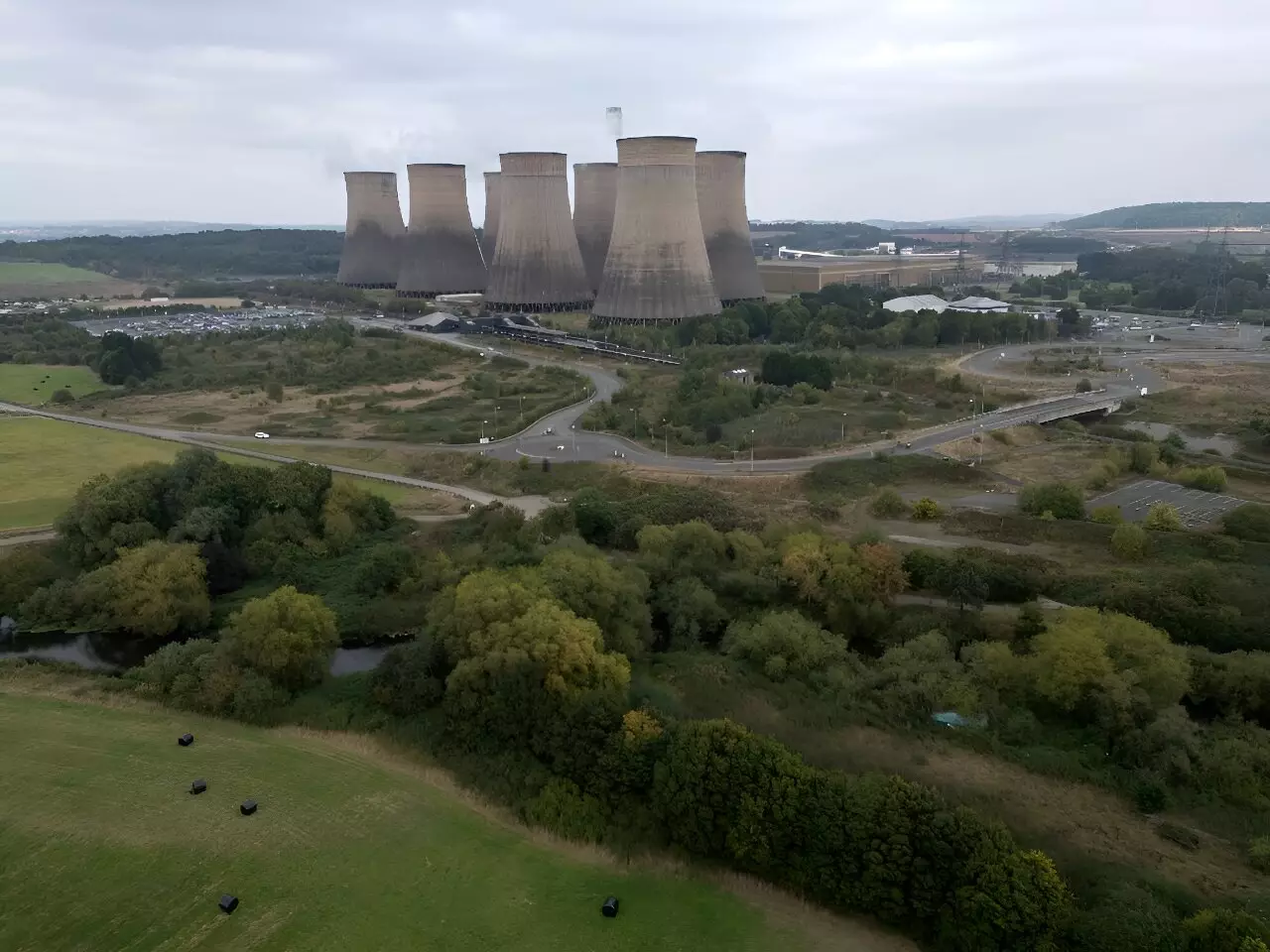On Monday, a significant chapter in the UK’s energy landscape will conclude as the last coal-fired power station, Ratcliffe-on-Soar, ceases operations. This pivotal closure does not just mark the end of an energy era; it also places the UK in an unparalleled position as the first G7 nation to entirely terminate its dependency on coal for electricity generation. The Ratcliffe-on-Soar plant has been a defining feature of the central English scenery for nearly six decades, playing a vital role in the UK’s industrial narrative.
The UK’s decision to officially abandon coal represents a commitment to ambitious climate goals, aiming for a decarbonized electricity sector by 2030 and achieving carbon neutrality by 2050. In addressing this momentous occasion, Energy Minister Michael Shanks remarked on the inception of a new era characterized by renewable energy jobs and innovative energy solutions. This forward-looking stance is welcomed as we witness a transition that encapsulates both environmental responsibility and economic opportunity.
The owner of the Ratcliffe-on-Soar plant, Uniper, has announced that the site will undergo a two-year decommissioning period beginning in October. The fate of the approximately 350 employees and contractors who have devoted their careers to the plant hangs in the balance, with Uniper assuring the workforce of potential redeployment opportunities within the company. However, the transition does not come without apprehension. Employees face redundancy with three planned windows before 2026, prompting concerns about job security and the broader economic ramifications of such a substantial shift in energy policy.
Uniper envisions the site transforming into a “carbon-free technology and energy hub,” reflecting a broader strategy to repurpose historical coal locations for cleaner energy initiatives. This transition is emblematic of a larger movement within the UK to pivot from fossil fuels while ensuring that communities reliant on these industries retain a vital role in the green economy.
While the UK’s move away from coal is groundbreaking, it serves as a clarion call for other nations to follow suit. Countries like Italy, France, and Germany are in varying stages of phasing out coal, but with scheduled timelines that stretch into the late 2030s. In contrast, Japan and the United States have yet to establish definitive goals. Doug Parr of Greenpeace UK emphasized that the UK’s example must galvanize other countries to accelerate their commitment to transition away from fossil fuels, delving deeper into the global discourse initiated at international climate conferences like COP28.
The historical significance of coal in Britain cannot be understated. Once heralded as the lifeblood of the Industrial Revolution, coal has shaped the nation’s economic landscape for over a century. Yet its prevalence dramatically declined over the years; from a staggering 70% of the electricity mix in the 1980s to a mere 1% last year. Each reduction signifies a deeper societal acknowledgment of coal’s environmental impact and a collective will to transition towards cleaner energy sources.
As coal fades, renewable sources are stepping into the breach, increasingly dictating Britain’s energy mix. In 2023, natural gas comprised one-third of electricity production, while wind power accounted for a quarter and nuclear energy contributed 13%. Utilizing these resources effectively paves the way for a more sustainable and diverse energy sector.
The new Labour government has taken proactive steps to fortify this transition, launching an ambitious green energy strategy focused on offshore wind, tidal power, and nuclear energy. By establishing a publicly-owned body dedicated to these innovations, the government endeavors to invigorate the economy while embracing environmental stewardship.
The recent operations of Ratcliffe-on-Soar highlight the decline of coal’s relevance in modern energy needs. The plant, previously capable of powering two million homes, was recently relegated to emergency use, powering just 500,000 homes for a scant eight hours during peak demand.
The conclusion of coal-fired power generation in the UK symbolizes both an end and a new beginning. While the closure of Ratcliffe-on-Soar marks the final bow of coal in the national energy tableau, it concurrently sparks innovation and employment opportunities in renewable energy sectors. As the world looks toward the future, the UK sets a precedent, demonstrating that transitions toward cleaner energy sources can ensure both environmental preservation and economic revitalization. It is now crucial for the nation to leverage its departing reliance on coal to spearhead further advancements in renewable energy technologies, stabilizing its commitment to a sustainable future.


Leave a Reply